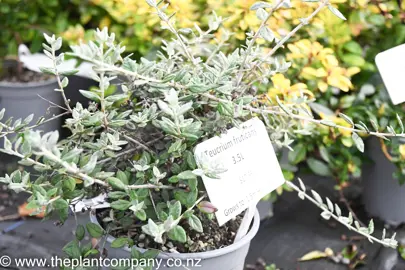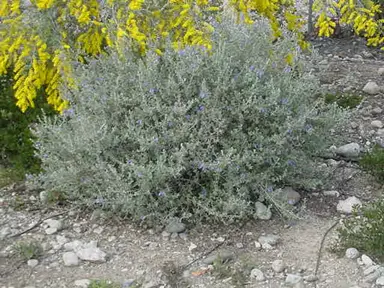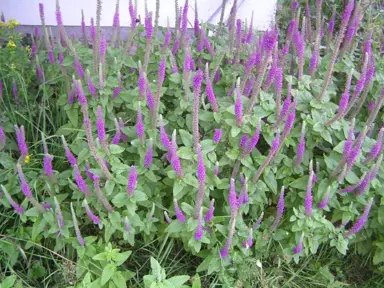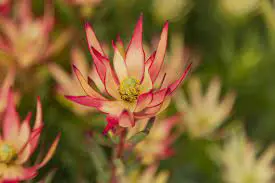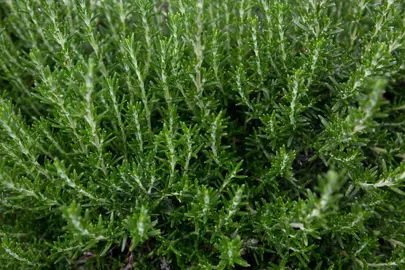Teucrium fruticans
Bush Germander, Shrubby Germander, Silver Bush Germander
Teucrium fruticans is a popular, commonly known as Bush Germander, evergreen shrub that features small, dark blue flowers from summer through autumn. These are complemented with blue-grey-green foliage which is held on criss-crossing stems as it grows to 1.5 m tall and the same wide. Teucrium fruticans is commonly included in a mixed planting, maintained in a container, trimmed into a hedge, used for topiary, planted around outdoor living areas, or mass planted for a lovely display. The versatility and attractiveness of this plant makes it very popular.



